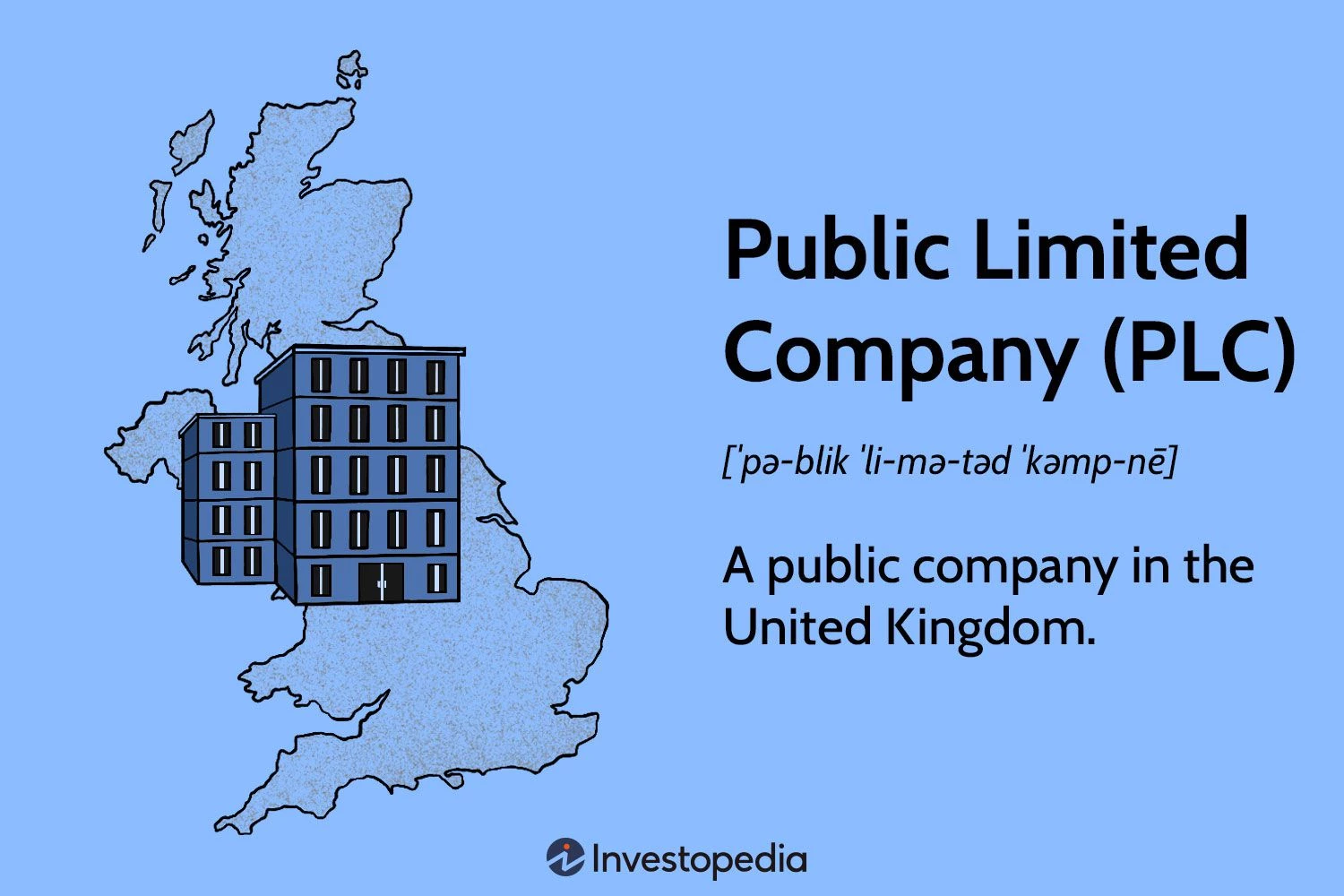What Is a Public Limited Company (PLC)?
In the United Kingdom, a Public Limited Company (PLC) is the equivalent of a publicly traded company in the U.S., denoted by the Inc. or corporation designation.
It is a legal requirement for companies to use the phrase “public limited company” or the abbreviation “PLC” to signify that they are publicly traded entities, providing transparency to investors and stakeholders.
### Key Takeaways
- PLC or public limited company is a term used for publicly listed companies in the UK.
- All companies listed on the London Stock Exchange fall under the category of PLCs.
- Retail investors have the opportunity to purchase shares in PLCs.
- Unlike private companies, PLCs are obligated to disclose specific financial information regularly.
- Prominent UK brands like Burberry and Shell often include the suffix PLC in their formal names.
How a Public Limited Company (PLC) Works
A PLC offers shares of stock to the general public, ensuring that shareholders have limited liability, safeguarding them from excessive business losses beyond their investment.
Operating akin to public corporations in the U.S., PLCs in the UK are subject to regulatory oversight and are mandated to furnish regular financial reports to shareholders and potential investors.
Requirements for a PLC
According to UK company law, a PLC must append “Public Limited Company” or “PLC” to its name and maintain a minimum share capital of £50,000.
PLCs issue various shares, including ordinary and cumulative preference shares, with ordinary shares akin to common stock in U.S. corporations.
The largest PLCs form the FTSE 100 Index, commonly known as the Footsie.
Advantages and Disadvantages of a PLC
The primary benefit of establishing a PLC is the ability to raise capital through public share issuance, attracting a diverse investor base.
Conversely, PLCs face stringent regulatory requirements in the UK compared to public corporations in the U.S., including transparency standards and shareholder pressure.
While PLC status offers enhanced capital access and liquidity to shareholders, it also entails increased scrutiny, reporting obligations, and market-driven valuation fluctuations.
### Pros
- Enhanced capital-raising ability as a PLC.
- Provides liquidity to shareholders.
- Facilitates future capital raising and acquisitions through share offerings.
### Cons
- Increased regulation and scrutiny.
- Accountability to a larger number of shareholders.
- Valuation volatility due to market influences.
Public Limited Company (PLC) vs. Private Limited Company (LTD)
PLCs are publicly traded companies in the UK, whereas Private Limited Companies (LTDs) are non-public entities, with shares not available for public trading.
Private companies are required to adhere to legal formalities and appoint at least one director.
Accessing public investment necessitates PLC status, involving publicly traded assets and the appointment of a minimum of two directors.
How To Invest in a PLC
Retail investors in the UK can purchase PLC shares through brokerage accounts, allowing for seamless share acquisition.
Overseas investors can acquire PLC shares through U.S. brokerages or American depositary receipts, notwithstanding additional currency risk.
Examples of PLCs
All companies on the London Stock Exchange are PLCs, including renowned entities like Burberry Group plc and Rolls-Royce Holdings plc, constituting the FTSE 100.
These PLCs, exemplifying the UK economy, feature in major indices like the FTSE 100, with market leaders like Shell and AstraZeneca commanding substantial market capitalization.
While many PLCs are listed on exchanges, some opt for non-listed status due to specific requirements.
What Does It Mean To Be a Public Limited Company (PLC)?
A PLC in the UK is a publicly traded entity that must include PLC or “public limited company” in its name, such as BP plc, a UK-based company headquartered in London, England.
Who Is a Public Limited Company Owned by?
PLCs are owned by shareholders who trade shares openly on exchanges, differing from private limited companies that operate with restricted share transferability.
What Are the Main Features of a PLC?
Key features of a PLC include being UK-based, publicly traded, and mandated to append PLC or “public limited company” to their name.
What Is the Difference Between a Public and Private Limited Company?
A PLC is publicly traded, while a private limited company operates privately, with distinct directorship requirements, illustrating the primary disparity between the two.
The Bottom Line
PLCs in the UK, akin to U.S.-based Inc. or Corp. companies, provide opportunities for public trading, with renowned examples like Unilever plc and AstraZeneca plc exemplifying the UK’s diverse corporate landscape.
